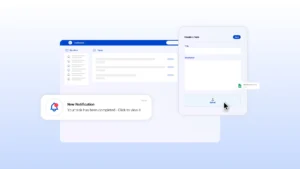The potential traffic you will receive for every keyword is dependent on the average monthly volume of searches it gets. You will get more and more traffic the higher you rank with search terms that have high volumes of monthly searches. However, high volume keywords also garner the most competition. There is no sense in trying to rank for keywords that you don’t have any chance of ranking for. This is why the right balance needs to be found between the competition and the search volume.
If you’re in a situation where you can’t compete with the big boys in terms of keyword searches, the best thing to do is target low competition keywords.
Here is how to find low competition keywords with high-volume searches.
Filtering Out Keywords
There are two main factors that you should look at when it comes to keywords. Firstly, the keyword difficulty is the estimation of how hard it will be to outrank the web pages and websites currently in the top ranks of Google for any keyword. Secondly, you also have to look at the number of advertisers who are currently using the same search phrase as a keyword for their ads. While this data is only for paid search competition, it can also be indicative of organic searches.
By using this data, you will be able to find the right balance between competition vs. keyword volume in searches.
Evaluating Keyword Difficulty
Keyword difficulty from 1% to 100% will show an estimate of how hard it will be to take up the positions of your competitors on popular search engines via a specific keyword. The greater the percentage for the
targeted keywords, the greater effort you will need to put in to outrank the competition.
- Below 60% are the keywords that will be the easiest to rank, but they aren\’t necessarily easy to find. Discovering high-volume, low-competition keywords can demand patience and hard work. However, if you can achieve a strong list of such search terms, you will have a greater chance of ranking higher for such keywords.
- From 60% to 80%, keywords will have an average difficulty. While entering the top 20 popular search engines with such keywords will not be easy, you can still seize the ranks with relevant backlinks and quality content.
- Above 80% is where the most difficult keywords are found. You will have to invest greatly in link-building and SEO efforts. You will also need to invest a lot of time to break through the top 20 ranks on search engines. If you have launched the website recently, you should not focus on such a heavy ranking.
Evaluating the Competition Levels
To evaluate the competition levels of a keyword, we can roughly use the same scale. The metric is between 0 and 1 and measures the paid advertiser density. The closer the score is to 1, the greater the advertiser density amount. Therefore, it will be harder to stand apart from the competition in the search results.
- Below 0.6 are keywords that have a lower density of paid advertisers. This means that they may not be profitable for advertising or are lower on the radar for most of the competition.
- From 0.6 to 0.8 are keywords with average densities of advertisements. You can experiment using these keywords organically and then go for advertising if the first strategy does not work. Either way, a quick win will not be possible.
- Above 0.8 are keywords that face high competition by advertisers. You may have to invest money in advertising when it comes to these keywords since organic reach may be hard to achieve.
Conclusion
You should go for keywords with a keyword difficulty ranking of less than 75 keyword difficulty. These keywords will be easier to rank and will not require as much effort. However, you should also keep an eye on the competitiveness of the keyword since it will dictate how you approach the keyword’s content. Once you know how to find low competition keywords, the trick is to then evaluate them and use them to your advantage.
Visit Savage Global for more SEO tips and tricks.


